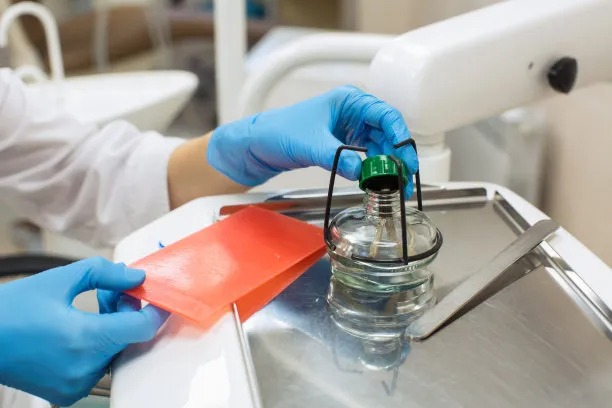Summary: This article addresses the crucial guidelines for ensuring safe and effective root canal treatment, which plays a significant role in maintaining optimal dental health. Root canal therapy is often misunderstood, yet it is a vital procedure for preserving natural teeth and preventing further dental issues. The following guidelines cover pre-treatment preparations, the necessary tools and techniques during the procedure, post-treatment care, and the importance of follow-up visits. Each section will provide detailed insights to enhance the understanding of this essential dental procedure and its impact on overall oral health.
1. Pre-Treatment Preparations and Considerations

Before undergoing root canal treatment, a comprehensive examination is crucial. This typically involves taking X-rays to assess the extent of the infection and to plan the treatment effectively. Understanding the specific condition of the tooth in question can greatly influence the success of the procedure.
Moreover, discussing medical history with the dentist is essential. Patients should inform their dentists about any existing health conditions or medications they are taking. This information helps the practitioner make informed decisions about anesthesia or any adjustments needed during treatment.
Lastly, setting realistic expectations about the procedure is vital for patients peace of mind. A thorough discussion with the dentist about what to expect during and after the treatment can alleviate fears, making for a smoother experience overall.
2. Necessary Tools and Techniques During the Procedure
Root canal treatment requires specific tools and advanced techniques to be performed effectively. Dentists typically use an electric handpiece, endodontic files, irrigation solutions, and digital radiography. Each of these tools plays a critical role in cleaning and shaping the root canals adequately.
The use of an operating microscope can also enhance precision during the procedure. This advanced technology allows dentists to see the intricate structures within the tooth, ensuring that no infected tissue is left behind and that the tooth is adequately cleaned and sealed.
Moreover, the technique employed, such as the "crown-down" method or "passive dynamic" technique, can impact the overall success of the treatment. Employing these advanced methods can help in thorough debridement and disinfection, essential for maximizing treatment effectiveness.
3. Post-Treatment Care for Optimal Recovery
After undergoing root canal treatment, patients should follow specific post-care instructions to ensure optimal recovery. Its essential to avoid chewing on the treated tooth until a definitive restoration is completed. This minimizes the risk of damaging the tooth further.
Managing discomfort after the procedure is another critical aspect. Dentists often prescribe pain relievers or recommend over-the-counter options to help manage any post-operative pain. Following these recommendations can significantly reduce discomfort and promote faster healing.
Monitoring for any unusual symptoms, such as persistent pain or swelling, is crucial. If such symptoms arise, patients should contact their dentist to determine whether additional treatment or care is needed. Paying close attention to healing can influence the long-term success of the root canal.
4. Importance of Follow-Up Visits and Maintenance
Follow-up visits play a vital role in ensuring the success of root canal treatment. These visits allow the dentist to monitor the healing process and check for any signs of reinfection. Regular check-ups can help identify issues early before they become significant problems.
In addition, maintaining good oral hygiene is essential following a root canal. Patients should continue to practice proper brushing and flossing techniques to protect the treated tooth and overall oral health. This includes visiting the dentist regularly for cleanings and check-ups.
Ultimately, residents should understand that a successful root canal procedure can significantly prolong the life of a tooth. With good maintenance and follow-up care, patients can enjoy better dental health and avoid future complications that may arise from untreated dental issues.
Summary:
In conclusion, ensuring safe and effective root canal treatment is vital for optimal dental health. From thorough pre-treatment preparation to careful post-treatment care and the importance of follow-up visits, each step is crucial for achieving the best outcomes. Being well-informed and proactive can significantly enhance the probability of a successful recovery and maintain long-lasting dental health.
This article is compiled by Vickong Dental and the content is for reference only.
Vickong Dental
Vickong Dental is a large medical group established in Hong Kong in 2008 by professors from well-known medical universities in Guangdong and Hong Kong, as well as medical doctors from key national '985' universities (including Master's supervisors and senior professors). The chain of branches brings together expert dentists with PhDs and Master's degrees from Hong Kong and Mainland China, committed to providing high-quality dental treatment.
"Vickong Dental Practices the University Motto of 'Healing and Serving Society,' with a Stable Operation for Sixteen Years. It Has Been honored with Hong Kong Enterprise Leaders's Choice,' and is a Global Trusted Implant Center for the Nobel Implant System. Recommended by Hong Kong Metro Broadcast and Guangdong Television, it Serves Customers from Over Thirty Countries and Regions, Gaining the Trust and Favor of Citizens from the Guangdong-Hong Kong-Macau Greater Bay Area and Surrounding Cities.

Thousands of customers' unanimous praise
The most recognized and highly recommended dental service by customers in the Guangdong-Hong Kong-Macau Greater Bay Area
We Ensure You Receive Detailed Care and Attention Here
Hong Kong standards, Shenzhen prices, Your Trusted English-speaking dentists

Vickong Dental Medical-Grade Instrument Disinfection Process
Vickong Dental Medical-Grade Instrument Disinfection Process

Vickong Dental Chain: A Warm and Comfortable Environment for Treatment






Appointment Hours

Q&A
Why choose Vickong Dental?
Vickong Dental practices the university motto 「Medicine to Benefit Society」, with each branch bringing together highly qualified dentists with doctoral and master’s degrees from Hong Kong and the Mainland, and has maintained seventeen years of steady operation。Recipient of 「2024 Hong Kong Enterprise Leaders Brand」, 「2025 Hong Kong Enterprise Leaders Brand」, a Nobel Biocare Global Trusted Implant Center, and a brand recommended by Metro Radio Hong Kong and Guangdong TV。
To date, we have served customers from more than thirty countries and regions,earning exceptionally high word-of-mouth recognition and trusted recommendations from residents across the Guangdong-Hong Kong-Macao Greater Bay Area and surrounding cities
We have eight major branches in Zhuhai、Shenzhen,and a consultation and service assurance center in Hong Kong,so you can book a free consultation at any time for any questions,which is very reassuring.
If I do not accept the quotation after the CT scan, will I be charged??
No! As long as the actual treatment has not started, you will not be charged any fees.
Will there be any additional charges during the treatment process?
No, there won’t be any additional charges. Before treatment begins, we will clearly explain the treatment plan and its corresponding fees. Only after the patient agrees and signs the consent form will we proceed with the dental service.
Can I pay in Hong Kong dollars?
Yes. Vickong Dental accepts payment in Hong Kong dollars. The amount will be converted based on the exchange rate of the day, and the applicable rate will be clearly communicated to you in advance.
Can I reschedule my appointment at any time?
Yes. Please contact us via **WeChat** or **WhatsApp** as early as possible, providing your original appointment time and details, along with your preferred new date and time slot for rescheduling.













